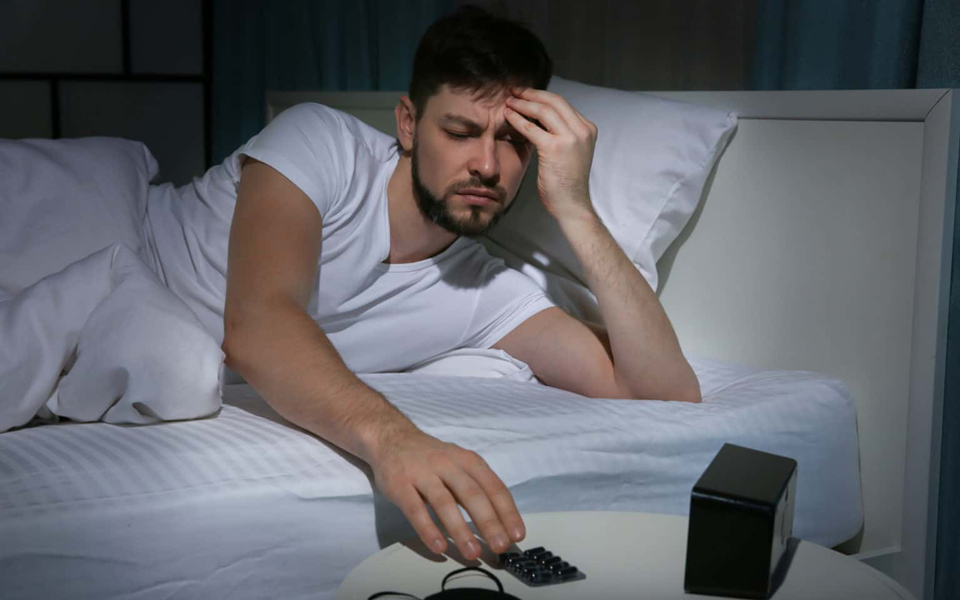Sleeping disorders are prevalent among Australian life, in fact, The Sleep Health Foundation reports “more than half of adult Australians are suffering from at least one chronic sleep symptom that is affecting their ability to live a healthy, happy life.”
The full report – available for your viewing pleasure here – which surveyed 2,044 adults aged 18 years and over across Australia between March and April 2019, reports 59.4 per cent of participants as claiming to suffer from at least one sleep symptom three or more times a week.
But while sleep psychologists and health organisations encourage the use of cognitive behavioural therapies (CBT) or simply allocating enough time in a night for our bodies to rest properly, many sleep-symptom sufferers will turn to prescription medication to help them with their slumber. However, this brings with it several risks to their health, which can often be fatal.
View this post on Instagram
Rose Clancy, Sleep Psychologist and owner of Sydney-based Let Sleep Happen, tells us it’s all too common for Australian men in particular to overdose on sleep medication and suffer unintended fatal consequences, “approximately 80 per cent of male overdose fatalities are accidental, according to the 2016 ABS Overdose Deaths data.”
The root cause of accidental deaths, or at least, the “most common substance found in overdose deaths in the past 20 years in Australia is benzodiazepines.” More specifically, “benzodiazepines were identified in 663, or 36 per cent of [these] deaths in 2016.”
The average age of males who died from an accidental overdose is rather alarming, at 42, with the median age for suicidal overdoses being recorded at 51.
The Australian Bureau of Statistics data adds that in 2016, “an individual dying from a drug-induced death in Australia was most likely to be a middle-aged male, living outside of a capital city who is misusing prescription drugs such as benzodiazepines or oxycodone in a polypharmacy (the use of multiple drugs) setting.”
Benzodiazepines include the drugs Valium and Xanax, the latter of which has had its ease of access significantly restricted in Australia in recent years. It was benzodiazepines (as part of a mixture with oxycodone and hydrocodone) that killed Australian actor Heath Ledger in 2008.
Rose cites Dr Drew Pinsky, a US-based drug addictions specialist, as saying “celebrities don’t get an evidence-based addictions treatment, but jobless people on a court order are able to get substance dependence treatment.” So even if it was brought to someone’s attention that Heath was a regular user of prescription medication, he wouldn’t have been eligible to enrol in a treatment programme.
The Sleep Health Foundation says, “There is a clear need for better insight into the treatment options patients with insomnia access, the perceived success of these options, and importantly, how regularly gold‑standard treatment options are accessed by those who could benefit.”
So how easy is access to prescription medication? In Australia, prescription drugs are subsidised by the Pharmaceutical Benefits Scheme (PBS), which falls under the Medicare umbrella. According to a 2016 report from the Victorian Coroners Court,
“…close to seven million prescriptions for benzodiazepines are dispensed in Australia each year under this scheme, and their main indications for use are short-term treatment of anxiety and insomnia.”
“In Australia, general practitioners (GPs) are the main sources of benzodiazepines for 61% of those patients who misuse them.”
However, repeat prescriptions for several users can suggest the drugs are being used for other reasons, and can even indicate an addiction.
So, what should you do if you, or someone you know, is a regular user of prescribed medication to combat sleeping disorders? The first port of call is to ask them if they’re ok. If you don’t get much of a response, you’ll then want to reach out to a professional organisation, such as the appropriately named, Reach Out, an online mental health organisation that provides support for a range of health topics. Alternatively, you can get information from the Addiction Center.
